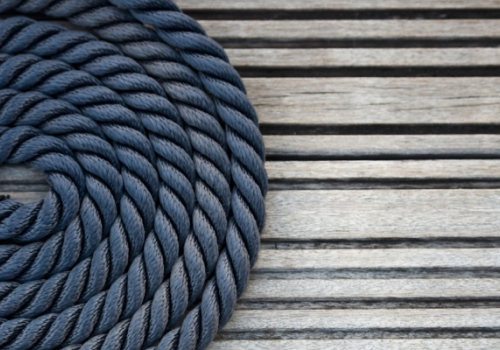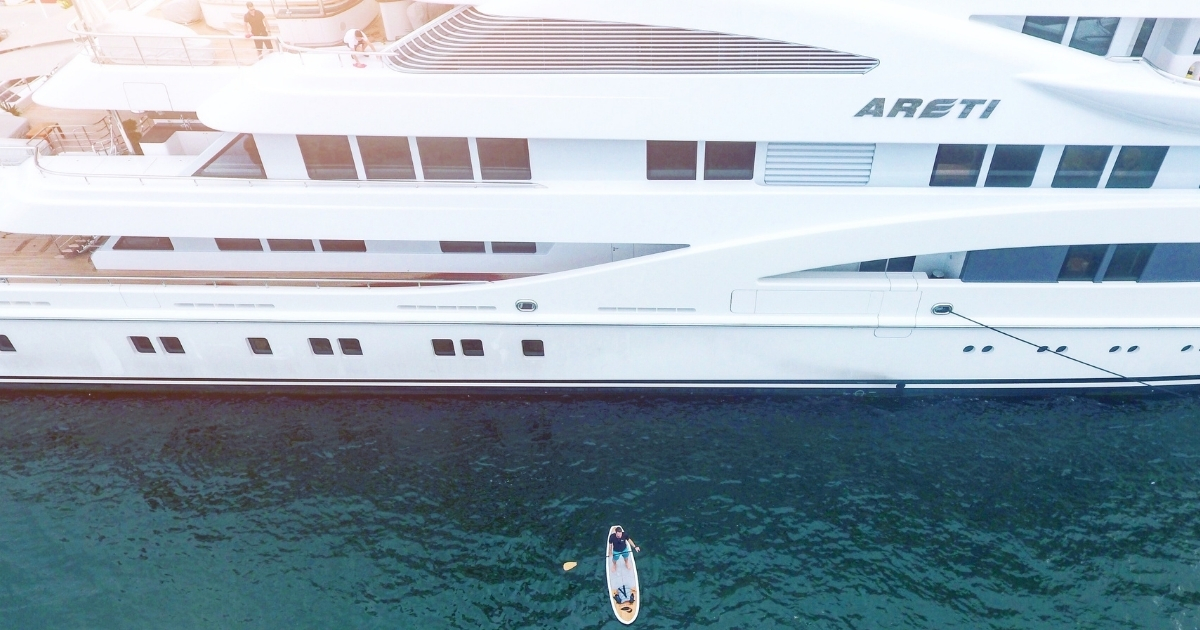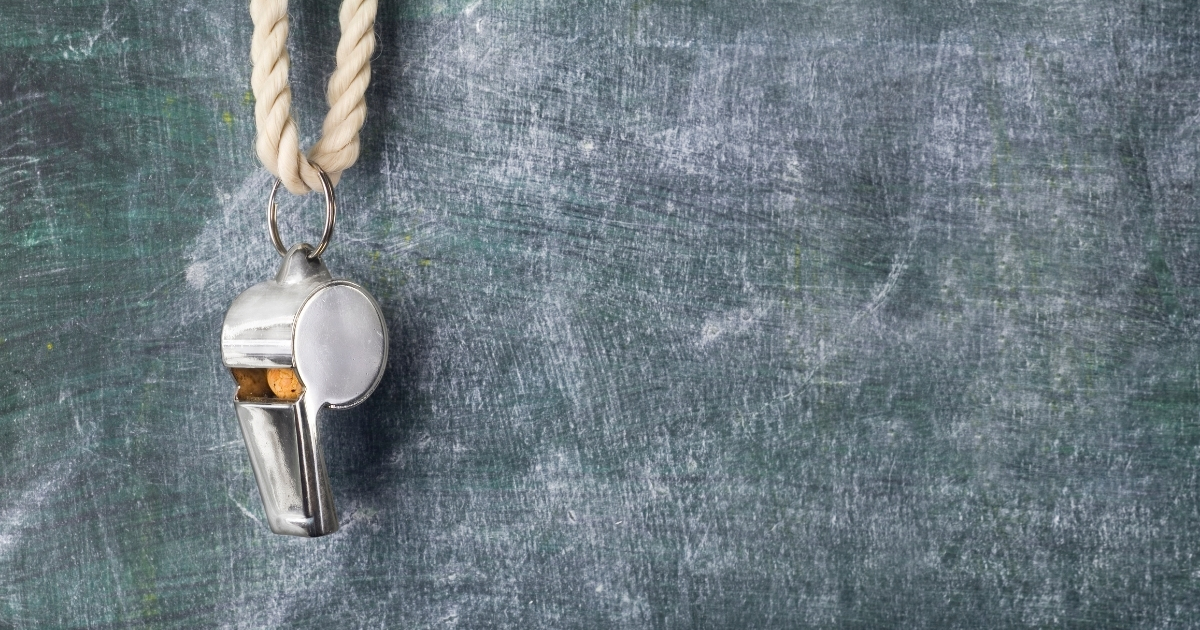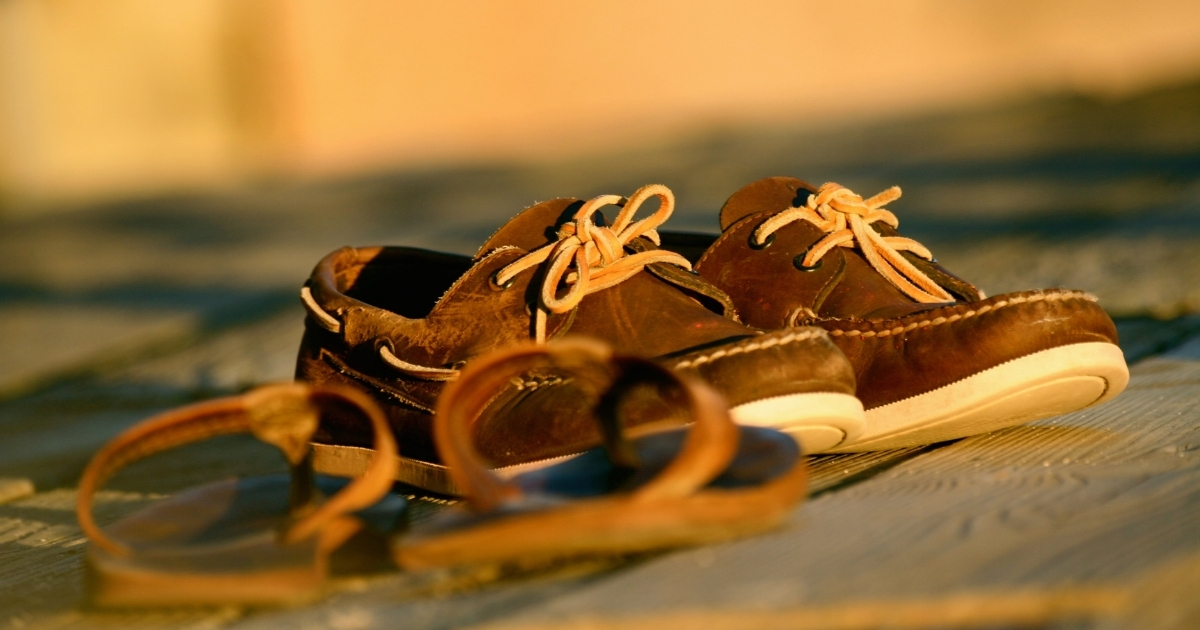
Is Beelzebub in your bilge? Are there gremlins in the galley? Part One of a 'how-to guide for banishing seafaring superstitions aboard, nautically balancing your vessel, and keeping it that way.
Given the nature of the information, a necessary introduction comes forthwith:
Edmund Burke, the 18th century British political writer said, “Superstition is the religion of feeble minds.”
Hamlet, Shakespeare’s most melancholy Dane, cogitated that, “All is not well; I doubt some foul play.”
“Horse hockey!” remarked a crusty curmudgeon of a captain I once fished with.
While poets, scientists, scholars, and theologians have contemplated the roots of superstition throughout the ages, none are more under its spell than those of us who go down to the sea in ships.
And as you may ascribe to some Neptunian/Poseidon-based superstitions, I have chosen to arm myself using a parallel interpretation of Newton’s Third Law of Physics—For every action, there is an equal and opposite reaction—to dispel any ensorcells coming my way.
Therefore, in order to share my so far unbroken lucky streak in dealing with these waterborne perturbations with you, my shipmates, I offer the following solutions.
But before we begin, let the wise mariner beware. Since karma is like a boomerang, you always carry yours with you. Hopefully all your worldly good deeds to date far outweigh your bad ones and therefore, should any of these conditions befall you, I hope you have enough juice built up to repel them.
The only guarantees here are that there are none. Good luck!
Changing The Name Of A Boat
It’s bad luck to change the name of a boat. Well, what if you don’t like the name of the boat you’re contemplating buying? Or, perish the thought, already own? Tripe Stew. Muck & Mire. Regurgitation. Skid Marx. Haggis.
Yes friends, these and others, some way too blue to make it into print for this collection—this is, after all, a family experience—are names I’ve seen adorning the transom, often in gold leaf and lavishly illustrated, of many a craft.
If you really can’t stand your boat’s present name, you can change it without fear of reprisal. But do it only in the following manner lest you stir up a heap of trouble.
First, you will have to ceremoniously obliterate the old name everywhere you find it. For example, run a clean rag once across the transom, or if the bows and superstructure are so festooned, up there also. And don’t forget the tender.
If there is a ship’s log aboard—logs are often kept by new owners for maintenance schedules—or a life ring, raft, salt and pepper shakers, and so on, take a pen, pencil, or marker and draw a single line through the name everywhere it appears.
Continue doing this throughout the boat, making a mark that in some way deletes the odious cognomen.

Next take a piece of paper and write the soon-to-be-exorcised name on it. Fold the paper up and place it in a small cardboard or wooden box. Burn the box completely until there are only ashes left. Scoop up the residue and take it to the water’s edge. Throw the remains into the sea on an outgoing tide.
If you live on a lake, do it at night and only during a new moon. For you river dwellers, send the scoriae downstream. You may now change the name everywhere on your vessel without fear of irking the ire of any mischievous water sprite. And of course the monogrammed towels will have to go.
AN ASIDE: Eugene V. Connett III, born 1891 and who died in 1969, spent most of his adult life fly-fishing and publishing rare and collectible sporting books at his Derrydale Press.
Such was his obsession that he exhausted his family fortune pursuing his dream and wound up in financial ruin. His take on the difference between a boat and a chicken coop is especially telling: “Boats are quite different from chicken coops; things on a boat must be able to take any licking to which they are exposed or you take the rap. In a chicken coop, the chickens take it.
Whistling Aboard
How about whistling aboard? In olden days, becalmed sailors whistled whether at the wheel, swabbing the decks, or chained in the fo’csle. This warbling was believed to bring up the wind.
Of course, centuries later, since the last thing some of us motorized boaters need is a blustery day—sail boaters need not heed this particular fallaciousness as they often require some sort of snotty blow to get them from Point A to Point B and even perhaps back again lest they turn on their engines to cover some ground at the very least; so for the ragbaggers amongst us, tweet and twitter away to your heart’s desire.

So be it. For the rest of us, trilling aboard is absolutely verboten.
However, if any of you power boaters happen to forget yourselves and by chance do pucker up and blow, merely spit overboard in the direction from which the wind is coming, and any errant gust will hasten itself to disappear. Don’t forget to duck or feint one-way or the other lest your chucker hit you on the way back. If it does, take a bucket of water from the ocean, lake, river, or bathtub and douse the spot where you were hit.
If it lands on your face, you can’t just wash the spot off. Instead, you’ll have to dump the whole bucket over your head. Of course there’s a more salty approach but again, this is a family site.
Fresh Fish: The first person to write in English about using a fishing rod was Dame Juliana Berners, whose Treatyse of Fysshynge wyth an Angle (c.1496) remained the basis of fishing knowledge in England for 150 years. Just saying.
Voyaging On A Friday
Then there’s the one about not embarking on a Friday. Well that comes from the idea that perhaps Christ was crucified on a Friday, and therefore it is very bad luck to set out on that day. And as far as where letting your lines go if the day falls on the 13th, well, perish the thought.
Even thinking of it will bring disaster down upon you on a biblical scale.

However, my good friend and dock buddy Father “Fishin’ Magician” O’Really—actually O’Reilly but due to his penchant for telling exaggerated fish stories we hung this respected moniker on him—has a remedy for this one.
Should those whose minds have contemplated such a voyage on that particular day of the week, he advises his marinized parishioners to say the proper novenas—especially those concerning St. Francis and St. Peter—and all will be just fine. “And for my Hebrew friends, of which there are many,” he said as we shared another wee Bushmills during this conversation, “Well it just doesn’t matter now does it my boy? They can set out any old day they wish.”
See where I’m going with this?
Overheard on a recent flight from Boise, Idaho to St. Petersburg, Florida: “Hey, Olive, be a dear and pass me that can of spinach.” Popeye, sailorman.
Bananas
Bananas. Now, how can nature’s perfect food ever be bad luck on a boat? Well shipmates, it seems that long ago, when iron men sailed wooden ships, many a voyage often put into exotic tropical locales for reprovisioning.
Among the foodstuffs taken on were copious amounts of bananas. And in these bunches of bananas, living happily on nature’s perfect food, were all sorts of bugs, spiders, and snakes and creepy-crawlies that, once aboard, often lived just as happily in the victuals, bunks, and on the bodies of the crew, including many a vexed captain.
Soon unexplained fevers and sores spread throughout the ships companies, and eventually to almost all the ports of call the vessels made, including its home port, as the insecta–the Latin family name–interlopers made it ashore.
When the irate masters finally figured out the source of the scourge, the word spread lickety-split from port to port and any form of genus Musa—that’s Latin for banana—aboard a ship was prohibited.

To cement the edict, they fed into the sailor’s trunk of superstitions that bananas aboard portended all sorts of ill and thus deemed the fruit bad luck.
Of course today this is all so much bilge water so there’s no need to deprive yourself of nature’s perfect food aboard your boat. But if you feel the need to dispel any chance of any bad mamma jamma coming your way, simply throw the peel into the water - not to worry tree-huggers, it’ll quickly get eaten as it rejoins the circle of life- while balancing on your right foot.
That’s your right foot. Never the left. And oh yes, make sure you’ve finished the banana before tossing the peel.
The code of the old U.S. Lifesaving Service: You have to go out, and that’s a fact. Nothin’ says you have to come back.
Getting On And Off A Boat
And don’t make light of this left foot thing. Getting on and off a boat with your left foot—you’re not supposed to in case you didn’t know—is a big no no.
You question the authenticity of this fact? Then you research it in the Gutenberg Bible on your own. But if you happen to absentmindedly make this podiatric faux pas, merely retrace your steps backwards exactly as you made them forwards until you are either dockside or deckside.

Take off your shoes, sneakers, flip-flops, or whatever and switch them to the opposite foot. Then step on or off the boat, right foot first of course, after which you can put your whatever’s back on the proper foot.
If you’re one of those unshod boaters—go figure anyone with a splinter/hot-deck fetish or having a penchant for picking up all sorts of foot fungi that are more than happy to take up residence and multiply and be fruitful between your toes—perform the same maneuver.
Do the reverse shodding thing, and get on or off. Right foot first please, or you’ll have to do the whole thing over again but this time twice. Once ashore or aboard, feel free to unshod yourself if you must.
In response to the question of how long a particular seaman had been a sailor, there’s some insight I found in this little ditty:
All me bloomin’ life.
Me mother was a mermaid,
I was born on the crest of a wave
And rocked on the cradle of the deep.
Seaweed and barnacles are me clothes,
The hair on me head is hemp,
Every bone in me body’s a spar,
And when I spits, I spit tar.
I’se hard, I is, I am, I are.
Keepin Good Luck Aboard
Getting from bow to stern on many a craft is often a task that is made even more difficult by the many things that can be left on deck.
Anything from a mop to a length of line to last night’s empties lying about can and will get you in trouble. And should you accidentally overturn a bucket full of water, you are leaving yourself, your vessel, and those aboard facing dire consequences.
You see the water inside the bucket is considered to be good luck and the more that spills out, the more good luck will be leaving. Therefore, make all haste to right the bucket and save even the smallest amount of water.
Any luck left is better than none at all. Under no circumstances should you leave the bucket overturned. A prudent skipper will therefore alert all in his crew to make sure they are ever vigil whenever buckets full of water are about.

Should this happen aboard your boat, and you have been successful in righting the bucket and saving some of the water, immediately fill the container with water which has come from overboard in the general area where the spilled liquid found its way to the sea; it takes a sharp eye and a keen mind not to panic when this happens.
Just follow the trail to the nearest scupper. But do not use the righted bucket for fetching. Instead use another ewer, jug, carton, cup, container, pitcher, basin, decanter, or carafe until the pail is half full.
Then, as you are pouring the very next fill into the bucket, throw a copper penny overboard on the opposite side from where you are filling. As copper is the main ingredient in protective anti-fouling paint, this is a way of making an offering to safeguard your hull bottom as well.
The metal was also used as copper sheathing on hull bottoms on ships in days gone by. Anyway, making this submission while refilling your bucket with water will ensure that good luck will return aboard your vessel.
Once the bucket is filled, you can now slowly pour the water overboard, allowing it to surround your boat with fair winds, clear skies, and no underwater obstructions.
Should you kick over a bucket below decks, quickly sponge up as much as you can and get it back into the bucket.
Then, with as much alacrity as possible, get topsides and proceed with the already mentioned instructions. In this situation you can fill the bucket from any location but remember to toss the copper penny into the drink opposite from where you are.
First published on 18/02/2015, updated on 06/11/2020

Post your comment
You cannot post comments until you have logged in.
Login to post a commentComments
No one has commented on this page yet.
RSS feed for comments on this page | RSS feed for all comments